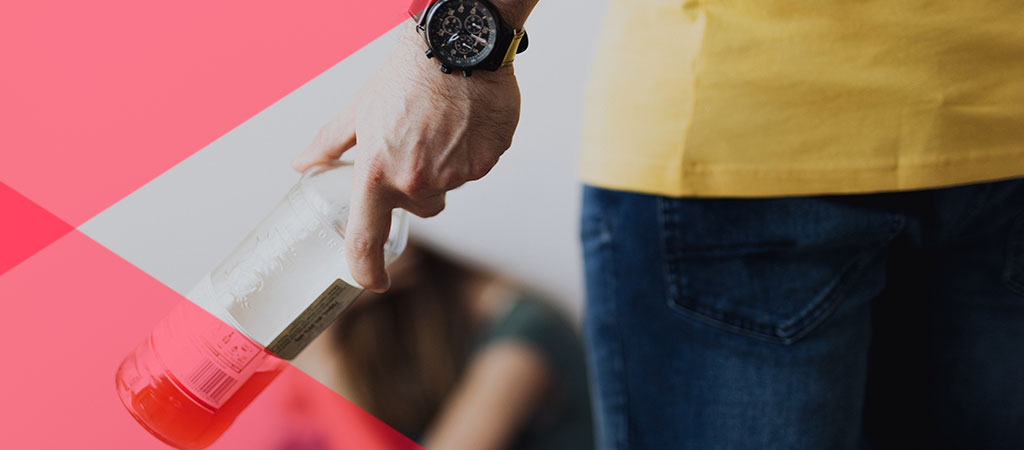Today, we’re going to talk about a topic that requires special considerations: dating a recovering alcoholic.
First, let’s define alcoholism and recovery. Alcoholism is a chronic disease characterized by an inability to control alcohol consumption despite negative consequences. Recovery, on the other hand, is the process of overcoming addiction and living a life free from alcohol. It takes commitment and dedication, and everyone’s recovery journey is different.

It’s crucial to understand addiction and recovery when dating a recovering alcoholic. Rebuilding trust is a crucial part of any relationship, but it’s especially important when dating someone in recovery. Additionally, it’s important to recognise the role that triggers and cravings can play in a person’s recovery and to support them in developing healthy coping mechanisms.
Another challenge of dating a recovering alcoholic is the risk of relapse. Addiction is a chronic disease, and relapse is always a possibility. It’s important to be aware of the signs of relapse and to know how to support your partner if it happens.
Table of Contents
But the goal of this article is not to scare you away from dating a recovering alcoholic. Instead, we want to provide you the knowledge and skills to create a healthy and fulfilling relationship. It’s important to be honest and open, set boundaries and expectations, and support your partner’s recovery.
In conclusion, dating a recovering alcoholic requires special considerations, but addiction can be overcome with support and resources. This guide will assist you in handling this type of relationship and helping your partner heal. Remember, with honesty, communication, and support, a fulfilling and healthy relationship is possible.
Understanding Alcoholism and Recovery
Alcoholism impacts millions worldwide. It’s a chronic illness that makes a person crave alcohol even when it harms them.
Alcoholism ranges from excessive drinking to addiction. The first stage is experimentation, when a person tries alcohol for the first time. The next step is social drinking, which is when alcohol is used in social situations. The third stage is problematic drinking, when alcohol use causes blackouts or legal concerns. In dependency, a person is physically and mentally dependent on alcohol.
Alcoholics have hope. Addiction recovery involves living alcohol-free. It’s a whole lifestyle change, not just stopping drinking.
Sobriety is not recovery. Rehab tackles the causes of addiction and teaches coping skills to stay sober. It takes dedication, but the rewards are great.
Recovery is individual. Many people need different types of assistance and treatment to stay sober. Individual therapy may aid some, while Alcoholics anonymous may help others. Find and stick to what works for you.
Alcoholism is a terrible disease with devastating effects. Recovery is achievable and can lead to a happy, addiction-free life. Understanding alcoholism’s stages and recovery’s importance is crucial. Remember that seeking help is not shameful, and there are many resources to aid rehabilitation.
Related: Single Dad Dating Childless Woman: Challenges, Tips, and Success Stories
What to Expect When Dating a Recovering Alcoholic
Dating a recovering alcoholic requires understanding. Dating someone in recovery has some common problems, advantages, and experiences.
First, dating a recovered alcoholic is gratifying and difficult. Your partner may be more self-aware, dedicated, and empathetic than in previous relationships. Yet, addiction is a chronic disease that can change a person’s life, so it’s necessary to prepare for its obstacles.
Relapse is a risk when dating an alcoholic. Recovering is a process. Know how to help your partner if they relapse. When your spouse learns to manage triggers and cravings, be patient and supportive.
Yet dating a recovering alcoholic has numerous benefits. Your partner may be more committed to a healthy, fulfilling relationship after recovery. Your partner may value your support and love, which can strengthen your relationship.
Dating a recovering alcoholic requires appropriate boundaries. It’s crucial to be upfront about your relationship requirements and boundaries. Setting drinking limits or being aware of triggers and unsafe circumstances may help. Working together to balance your partner’s recovery and your own well-being is crucial.
Dating a recovered alcoholic is gratifying but difficult. Honesty, open communication, and an understanding of addiction and recovery are crucial to the partnership. Healthy relationships are possible with support, limits, and dedication. Addiction is an illness, but it’s also a path to growth.
The Challenges of Dating a Recovering Alcoholic
Dating a recovering alcoholic is complicated. When dating a recovering alcoholic, these are some common issues.
Relapse is the main issue. Even individuals in recovery can relapse due to triggers and setbacks. Relapse isn’t failure, but it’s hard to accept. If your companion relapses, help them recover.
Alcoholic social situations are another difficulty. Alcohol can trigger recovery. Many social activities and date ideas incorporate drinking, making dating difficult. Be aware of your partner’s triggers and locate alcohol-free activities.
Dating a recovering alcoholic makes communication difficult. It’s crucial to be honest about your sentiments, expectations, boundaries, and needs in the relationship. When listening to your partner, learn their wants and problems.
Relationships with recovered alcoholics are equally difficult. Balance helping your partner’s rehabilitation with self-care and boundaries. Setting drinking limits, being aware of triggers and unsafe situations, and promoting healthy communication and respect may help.
Eventually, healing lasts a lifetime. Even long-term sobers might struggle. Even as the relationship changes, support and consideration are crucial.
Dating a recovering alcoholic might be difficult. Open communication, mutual respect, and a commitment to each other’s well-being can lead to a good and fulfilling relationship. Recovery takes time, work, and patience. You may date a recovering alcoholic and build a healthy relationship with support and understanding.
Related: How Often Should You Text Someone You’re Casually Dating?
Supporting Your Partner in Recovery
Supporting someone in recovery can help develop a healthy, rewarding connection. These are some ways to support recuperation.
Initially, healing needs support. Addiction is a complicated disease that often requires family assistance. Being a supportive partner can help your loved one stay motivated, on track, and connected to resources and tools to maintain sobriety.
Open communication is essential for a supportive partner. This entails listening to your partner’s concerns and sharing your own views and expectations. It’s crucial to set boundaries and be supportive of your partner’s issues.
As a caring spouse, you should learn about addiction and recovery. Reading books, attending support groups or counselling sessions, or simply asking questions and learning from your partner’s experiences may help. Learn about addiction and recovery to help your loved one. This post is sponsored by our partners.
Practical recovery partner tips are also available. You may need to avoid social situations with alcohol or drugs or watch your words while talking about addiction or recovery. Be flexible and open to change your conduct and attitude to support your partner.
Finally, watch for signs that your partner is struggling or at risk of relapsing. Changes in behaviour, attitude, motivation, social network, and lifestyle may occur. If you see any of these warning signals, speak up and help.
Summing up, helping a spouse recover can be difficult but gratifying. You may help your loved one achieve sobriety by communicating openly, being flexible, and watching for warning signs. Remember, healing is a lifelong struggle, and both partners must work hard to preserve a healthy, meaningful relationship.
Tips for Navigating a Fulfilling Relationship
Dating a recovered alcoholic is difficult, but achievable. You may have a happy, healthy relationship with your partner with the appropriate attitude.
Here are some relationship tips.
- Study addiction and rehabilitation. Understanding addiction and rehabilitation will help you support your partner. Learn about addiction, rehabilitation, triggers, and relapse prevention.
- Speak candidly When one partner is recovering, communication is crucial. Share your feelings, concerns, and expectations with your partner. Discuss ways to help each other and handle any issues.
- Be compassionate. Your partner may have ups and downs during recovery, which is difficult. Even in difficult situations, empathy and understanding are crucial. Addiction is a sickness, and your partner is trying to stay sober.
- Set limits While one partner is recovering, solid boundaries are especially critical. Set boundaries and respect your partner’s. Avoid enabling or relapse-prone situations.
- Shared interests and activities Sharing interests can boost your connection. Find alcohol- and drug-free activities you both enjoy. Exercise, time spent outdoors, art, music, and volunteering are examples.
- Honor accomplishments Celebrate your partner’s milestones and successes during recovery. This could be sobriety, treatment completion, or a personal goal. Celebrate these accomplishments with your companion.
- Get professional help if needed. If you or your spouse are having trouble in recovery, get professional help. Couples therapy, individual therapy, and family support groups are examples.
Relationships with recovered alcoholics require tolerance, understanding, and collaboration. Your relationship can be robust, healthy, and satisfying with the appropriate approach.
Seeking Professional Help
Dating a recovered alcoholic is complicated. Dating someone in recovery has numerous benefits, such as improved self-awareness and personal progress, but it also has distinct problems.
Professional help can help you understand and manage your relationship with a recovering alcoholic.
Many professionals can help you date a recovering alcoholic. Therapists and counsellors can help you understand and control your emotions and build healthy limits and communication in your relationship.
Coaches and mentors can also help you progress. They can help you prioritize your needs and set relationship goals and tactics.
Professional help might give you a new perspective. A professional can help you discover patterns and behaviours that may be causing relationship problems and give ways to break them and form new ones.
Do your homework and choose a provider that fits your requirements and personality if you’re considering professional therapy for your relationship with a recovering alcoholic. Choose a couple’s therapist with experience and a style you like.
Remember that getting professional help is not a sign of weakness but a powerful instrument for taking control of your life and achieving your goals. By investing in your own growth, you can strengthen your relationship and make it more satisfying.
In summary, professional help in managing your relationship with a recovering alcoholic can help you gain insight, establish successful methods, and achieve your goals. Whether you work with a therapist, counsellor, coach, or mentor, remember that you can control your life and build a better relationship.
Related: Am I Ready For a Relationship? Take Relationship Quiz to Find Out!
Conclusion
Dating a recovering alcoholic can be difficult but rewarding. It takes patience, understanding, and a willingness to grow together. Healthy boundaries, honest communication, and support are essential.
- Understanding alcoholism, recovery, and why dating a recovered alcoholic is different.
- Understanding the pros and cons of dating a recovered alcoholic.
- Communicating, supporting, and recognizing red flags to help your spouse recover.
- Having a fulfilling relationship involves setting goals, prioritizing self-care, and being present.
- Accessing therapy, support groups, and addiction specialists when needed.
Recovering requires time and effort. Your relationship may thrive with patience, empathy, and a dedication to development and healing.
If you’re dating a recovering alcoholic, seek help. You can overcome obstacles and develop a solid relationship built on trust, communication, and respect.
FAQs
1. Can a recovering alcoholic ever drink again?
It is generally recommended that recovering alcoholics avoid drinking altogether. Even one drink can trigger a relapse and undo all the progress made in recovery. It’s important to remember that alcoholism is a chronic disease, and there is no cure. Therefore, it’s best to stay away from alcohol to avoid the risk of relapse.
2. How can I tell if my partner is at risk of relapse?
There are certain warning signs that may indicate your partner is at risk of relapse, such as changes in mood, increased stress levels, withdrawal from support systems, and a lack of motivation to attend recovery meetings. It’s important to have open and honest communication with your partner and to know what triggers their cravings. If you notice any concerning behavior, it’s essential to address it immediately and seek professional help.
3. Should I avoid social situations where alcohol is present?
It’s up to you to decide if you want to attend social situations where alcohol is present. However, it’s important to keep in mind that being around alcohol can be triggering for your partner and could potentially lead to a relapse. If you do decide to attend, make sure to have a plan in place for how you will handle the situation if your partner begins to feel uncomfortable or triggered.
4. How can I support my partner without enabling their addiction?
Supporting a recovering alcoholic without enabling their addiction can be a delicate balance. It’s important to offer emotional support, encouragement, and accountability while also setting healthy boundaries. Avoid making excuses for your partner’s behavior and do not engage in behaviors that could enable their addiction, such as purchasing or consuming alcohol. Encourage your partner to attend recovery meetings and therapy sessions, and remind them of their progress and the reasons they began their recovery journey.
5. Can a relationship survive if one partner is in recovery?
Yes, a relationship can survive if one partner is in recovery. However, it requires open communication, understanding, and a willingness to support each other. Both partners must be committed to the relationship and willing to work through any challenges that arise. It’s important to have healthy boundaries and to avoid behaviors that could trigger a relapse. Seeking professional help and support can also be beneficial for the success of the relationship.



[…] Relationships with alcoholics may have red flags. These red flags include enabling behavior from loved ones who cover up the alcoholic’s actions or make excuses for them; frequent arguments or conflicts related to the individual’s drinking habits; feeling isolated or neglected due to the person’s preoccupation with alcohol; and emotional abuse or manipulation in the relationship. […]
[…] Related: Dating a Recovering Alcoholic: Understanding the Challenges and Navigating a Fulfilling Relationship […]
Thank you for sharing this insightful post! Your depth of knowledge and unique perspective really shines through. I particularly enjoyed how you presented the information – it was both engaging and informative. Looking forward to reading more of your work!
I appreciate you sharing this blog post. Thanks Again. Cool.
Great information shared.. really enjoyed reading this post thank you author for sharing this post .. appreciated
This is my first time pay a quick visit at here and i am really happy to read everthing at one place
Hi there to all, for the reason that I am genuinely keen of reading this website’s post to be updated on a regular basis. It carries pleasant stuff.
I truly appreciate your technique of writing a blog. I added it to my bookmark site list and will
Your writing style is captivating! I was hooked from the first paragraph. The way you weave facts with narrative is truly skillful. This post not only informed me but also entertained. Can’t wait to see what you write next!
I really like reading through a post that can make men and women think. Also, thank you for allowing me to comment!
I truly appreciate your technique of writing a blog. I added it to my bookmark site list and will
I’m so glad I stumbled upon your post. It’s packed with useful information and presented so clearly!
The graphics and visuals in your post added a lot of value. They helped to illustrate your points and made the content more engaging. I appreciate the effort you put into creating them.
This is really interesting, You’re a very skilled blogger. I’ve joined your feed and look forward to seeking more of your magnificent post. Also, I’ve shared your site in my social networks!
Your post was well-researched and well-argued. You presented your points clearly and backed them up with solid evidence. It was a compelling read and I learned a lot from it.
For the reason that the admin of this site is working, no uncertainty very quickly it will be renowned, due to its quality contents.
I enjoyed the fresh perspective you brought to this topic. Your post was a breath of fresh air.
I am truly thankful to the owner of this web site who has shared this fantastic piece of writing at at this place.
I really like reading through a post that can make men and women think. Also, thank you for allowing me to comment!